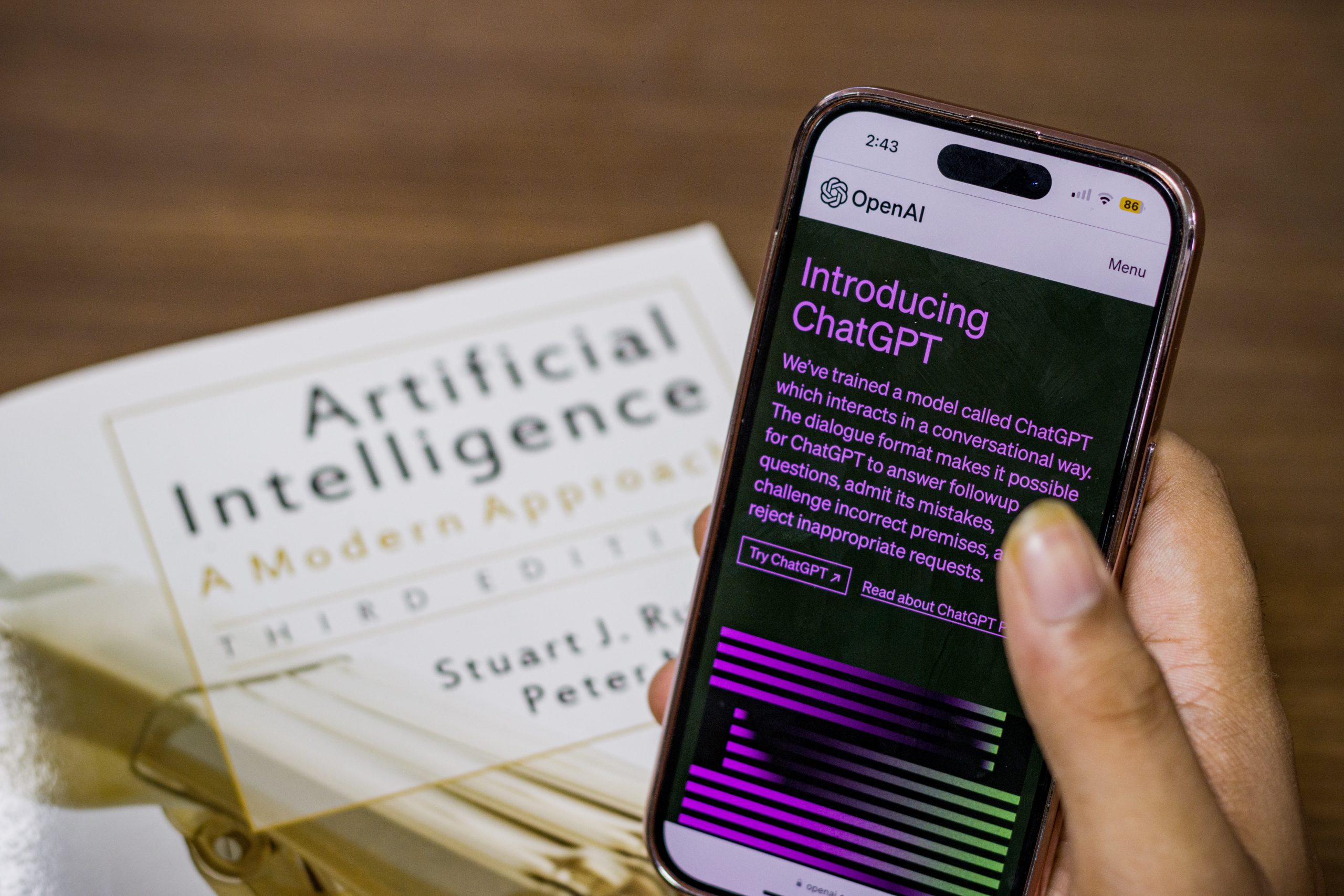At Wesoftyou, we understand the power of AI in revolutionizing software development. With our expertise in software development, we are excited to share our insights on the topic.
We believe that AI has the potential to transform the industry and enhance software development processes significantly. By leveraging AI technologies, businesses can achieve more efficient automation, leading to improved software quality and streamlined processes. In this blog post, we aim to explore the various ways AI can be effectively utilized within the software development process, while highlighting best practices for optimal results.
Exploring AI’s Influence in Software Development
The software development industry has been revolutionized by AI, specifically in terms of the development process. Leveraging Artificial Intelligence (AI) and its technologies such as natural language processing and machine learning algorithms is automating tedious tasks to improve quality results while reducing time spent on projects. Pioneering this field was John McCarthy who classified AI as ‘the computer science and engineering of making intelligent machines’; tools like OpenAI Codex, ChatGPT, Bing AI, Copilot etc are transforming how developers approach these processes with more efficiency that traditional methods could not reach before.
Benefits of Integrating AI into Your Development Process

By incorporating AI into your development process, software engineers can gain an array of advantages. These include improved code production, debugging and testing performance as well as the streamlining of project planning and management processes.
Let’s take a closer look at these positive outcomes in more detail to discover how artificial intelligence technology has become such a game-changer for developers around the world when it comes to using user feedback and optimizing their workflow!
1. Enhanced Code Generation
AI is revolutionizing the way software development works by providing code generation tools that can quickly create high-quality source code. AI powered tools such as ChatGPT and GitHub Copilot provide developers with a vast array just a couple of features including automated snippets, optimized coding practices, and even prototype design capabilities which help to streamline the whole process, transforming software development from concept right through to full implementation.
These advances in automation technology are helping speed up overall progress within the sector while also allowing for more complex tasks due to increased efficiency when writing source code. Ultimately transforming how we approach Software Engineering projects today.
2. Effective Debugging and Testing
The utilization of AI in software development presents numerous advantages, one being the enhanced ability to debug and test. This is achievable due to Artificial Intelligence powered tools such as Appvance, Testim or Diffblue which could reduce debugging efforts by up to 70%. Gains can be realized with ChatGPT providing aid in correcting syntax problems and CodeWhisperer automating unit tests, resulting in improved software quality and for better user experience without any bugs or errors. Using AI technology ensures that developers get the best results out of their code base during the software development process.
3. Streamlined Project Management
In software integrated development environments, AI can significantly optimize project management. By analyzing data related to the progress of a project, Artificial Intelligence assists managers in making smarter decisions with more accuracy and precision. It also provides key insights into each team member’s performance, which is instrumental for monitoring overall advancement efficiently. By utilizing natural language processing algorithms that convert text to readable data points easily understandable by machines. This technology helps facilitate collaboration among developers while keeping tabs on tasks & tracking projects from one common platform with ease.
7 AI Tools for Software Developers in 2023

AI tools have become increasingly popular for software development, ranging from AI-powered code completion to quality assurance testing and predictive analytics. Here we will dive deeper into these tools and explore how they can enhance the efficiency of any development process. We’ll also look at some key features that make these solutions such effective aids in software creation. Lastly, it is important to keep in mind why AI technologies are beneficial when it comes to writing better code faster – improved accuracy combined with increased speed of implementation are powerful advantages!
1. AI-Powered Code Completion
Software developers have a big advantage with AI-powered code completion tools, such as GitHub Copilot and Tabnine, which provide intelligent suggestions while the software developer types. This helps to speed up the coding process and create more accurate results. Design professionals can benefit from these technologies too thanks to ChatGPT-4 – an application that provides text representations featuring image content. Thus enabling them to craft user interfaces and customer journeys faster than before. Ultimately this leads software engineers to focus on complex tasks without sacrificing quality of their work due to increased efficiency in writing code via artificial intelligence powered assistance.
2. AI-Driven Quality Assurance Testing
Software developers can take advantage of computing power of AI-powered tools to automate their quality assurance testing process. This advanced technology enables the detection of any patterns or irregularities in how the software works, improving accuracy, data quality, and efficiency all at once.
Various AI-driven test platforms such as Appvance, Testim, and Diffblue are on offer for this purpose, helping ensure that bugs or errors will be minimized if not entirely avoided upon release. With these powerful resources at hand, they have no excuse when it comes to creating reliable applications backed up by state-of-the-art AI technology!
3. AI-Based Predictive Analytics
Software developers can utilize the power of AI and machine learning through predictive analytics to improve their software development processes. By leveraging advanced analytics, data science, and specialized AI tools, they are able to analyze user behavior, gain insights into user behavior, recognize patterns & trends within past datasets in order to make informed decisions about future plans or outcomes for improved results. Predictive analytics has become an essential part of staying competitive as a developer by helping create smarter and more efficient software systems that deliver higher quality software solutions on time with fewer errors than before.
How to Use AI in Your Development Process?

In order to successfully incorporate AI into your software development procedure, it is necessary to adhere to best practices. Herein we will be discussing the creation of an AI-ready development team, selecting suitable Artificial Intelligence tools as well as guaranteeing data security and privacy. Having a proficient staff responsible for managing all aspects related to the process can make a tremendous difference in terms of success rate. Picking out state-of-the art AI applications that suit one’s needs – while taking other factors such as gender and race into account.
Building an AI-Ready Team
When creating an AI-ready team, it is important to recruit individuals with the right skills and knowledge needed for building and utilizing AI solutions. This includes data scientists, software engineers, project managers and AI engineers. To ensure that this integration into your software development process goes smoothly, providing training resources as well as cultivating a collaborative environment are essential in setting up such a team. Assembling experts who can take advantage of AI technology will allow you to seamlessly incorporate these capabilities during the development cycle.
Selecting the Right AI Tools
For any software development project, it is essential to select the right AI tools in order to ensure success. Doing research on each of these tools and being aware of their capabilities as well as considering the implementation cost and complexity involved are important factors when making this decision.
Some popular AI applications for developers include Tabnine, GitHub Copilot, Mintlify, Quillbot or Wordtune plus Otter.ai – while some frameworks like TensorFlow, Keras, PyTorch, Scikit-Learn and XGBoost often come into play during the development process too.
By selecting appropriate solutions from a range of options available, such as those listed above, with regards to both their abilities but also the costs associated with implementing them smoothly, can help improve your business analysts overall software development process while utilizing artificial intelligence elements in ai development.
Ensuring Data Security and Privacy
Software development that incorporates AI involves the risk of data breaches and unauthorized access to personal information. To protect this sensitive information, encryption techniques as well as mechanisms for controlling access and data mining must be employed.
It is necessary to adhere to the same security policies with both human-generated code developed software, and Artificial Intelligence generated code when it comes to implementing AI in software technology advancement initiatives. By taking these measures into account during integration processes, potential hazards surrounding integrating AI into software can potentially be reduced or avoided entirely.
3 AI Implementation Challenges And How To Overcome Them
Integrating AI into existing systems can be difficult, and the resource requirements it brings forth must not go overlooked. The compatibility between these new components is a concern that needs to be addressed as well as keeping human supervision over ai systems and its usage. In what follows, we’ll take a look at each of these challenges and provide potential solutions for them near future too.
1. Handling Resource Requirements
To ensure the successful AI integration of your software development process, careful planning and resource allocation is essential. It’s important that appropriate tools are available to the team for computational power, training data collection and preparation, model and machine learning model name, and leveraging the right kind of AI technology. Knowledge in big data storage networking and mathematical concepts should also be taken into consideration. In order to streamline this process properly while simultaneously keeping project management intact, it’s important that all to stay up to date these resources get allocated effectively.
2. Ensuring AI Compatibility with Existing Systems
In order to ensure successful AI integration, it is important that existing software systems are compatible with the AI system. This requires careful assessment of all relevant hardware and software so any potential issues can be identified in advance. By doing this, businesses can plan accordingly for a smooth transition when integrating an Artificial Intelligence solution into their development process, which will ultimately minimize disruption to the business processes day-to-day operations during the implementation stage.
3. Maintaining Human Oversight
In order to properly utilize AI technology in software development, human input is an absolute must. This involves monitoring AI algorithms for potential biases and making sure that autonomy or any other negative consequences are not produced by human intervention in the computer systems. To reach this balance of maximizing use of AI while still having a measure of control over outcomes, humans should stay included in the decision-making process during such development processes. By doing so, it will ensure successful usage as well as responsible integration when implementing Artificial Intelligence technologies into existing applications and solutions.
AI in Your Product Development with WeSoftYou
WeSoftYou is a front-runner when it comes to AI-driven software solutions, and we are prepared to assist you in utilizing the power of artificial intelligence within your software development.

Radius.ai is a groundbreaking service developed by WeSoftYou. It is specifically designed to enhance the experience of visitors to various public spaces such as hospitals, clinics, and other establishments. By leveraging our patented Viztel™ AI technology, Radius.ai transforms existing vision-capturing devices into a continuous stream of valuable, real-time, and actionable data.
Leveraging cutting edge deep learning tools and their unmatched human intelligence expertise can revolutionize your projects, maximize performance, while also delivering more refined products. With WeSoftYou by your side, embracing this technology provides an opportunity for greater success through improved efficiency that produces higher quality applications.
FAQ
Software developers can make use of AI to optimize their development process and increase productivity. Machine learning algorithms are capable of analyzing data patterns and forming efficient code, drastically decreasing the time it takes for software production. By employing machine learning techniques, designers can swiftly develop solutions with a higher degree of accuracy compared to traditional approaches used in software engineering. This not only allows them to create projects faster, but also provides extra insights into how things should be done more proficiently during the construction phase itself.
An example of AI in product development is the use of machine learning algorithms to enhance product recommendation systems. Many e-commerce platforms, such as Amazon and Netflix, employ AI-driven recommendation engines to suggest products or content to users based on their past behavior and preferences.
For instance, when you shop on an online retail platform, AI algorithms analyze your browsing history, purchase history, and even the behavior of users with similar preferences. These algorithms then generate personalized product recommendations, making it more likely for users to discover and purchase items that align with their interests.
By leveraging AI, product development teams can create more tailored and relevant user experiences, ultimately increasing customer engagement and driving sales. Additionally, AI-powered recommendation systems continuously learn and adapt, improving their accuracy over time, which is a valuable aspect of AI in enhancing product development.
By using data analysis employing the capabilities of machine learning such as natural language processing, predictive analytics and computer vision, AI can help businesses automate mundane and repetitive tasks and to optimize productivity. It gives them a competitive edge by providing insights from huge amounts of data quickly and accurately while helping make decisions quicker.
Software developers rely on AI to generate code to help them automate laborious activities such as programming skills debugging, which can save time and effort when launching a new product. This form of artificial intelligence also provides valuable insights into how users interact with the software so that it can be improved in ways otherwise not possible.






















